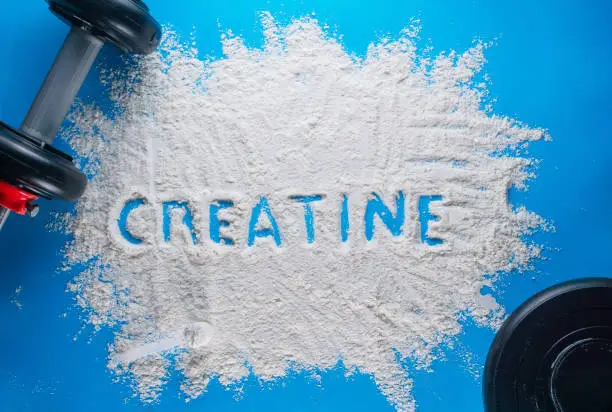If you’ve been anywhere near a gym, scrolled through fitness TikTok, or browsed Reddit threads on supplements, chances are you’ve come across the term “creatine monohydrate. It’s not new, it’s not fancy, and it’s not expensive, but somehow, it’s taking over the fitness conversation again.
So, what’s the deal with creatine monohydrate, and why do athletes and everyday gym-goers swear by it? Let’s dive into the buzz, the facts, and fun perspectives that make creatine more than just a “muscle powder.”
The “Comeback Kid” of Supplements
Creatine monohydrate isn’t a new player in the game. It’s been around since the early ’90s, and back then, it was hyped as a miracle for muscle growth. But just like fashion trends (hello, baggy jeans), creatine is back, and it’s cooler than ever.
The recent resurgence isn’t about hype. It’s about science catching up with real-world results. Hundreds of studies now back Creatine, and it’s not just about getting jacked anymore. There are cognitive benefits, mental health perks, and recovery advantages, too. People are taking it for focus, endurance, and even anti-aging.
What Is Creatine Monohydrate?
Let’s keep it simple. Creatine is a compound naturally found in your body, mainly in your muscles and brain. It helps your cells produce more energy, especially during high-intensity, short-duration activities like lifting weights or sprinting.
When you supplement with creatine monohydrate (the most studied and effective form), you’re topping off your body’s energy reserves. The result? You can push harder and recover faster, and yes, this builds more muscle over time.
Real People, Real Results
Ask any gym-goer who’s taken creatine consistently, and they’ll likely say the same thing: “It just works.”
Not like caffeine, where you feel it instantly. But over the weeks, you’ll notice:
- Better pumps
- More reps
- Faster strength gains
- Less fatigue between sets
One Reddit user even said:
“Creatine is like the friend that doesn’t make a lot of noise but always shows up. Three weeks in, and I’m adding 10 lbs to all my lifts.”
And that’s the charm. It’s not flashy, but it’s crazy effective.

It’s Not Just for Bodybuilders Anymore
Here’s where creatine monohydrate is breaking stereotypes. It used to be seen as a “bodybuilder supplement,” but that narrative is outdated. Now, you’ll find:
- Runners use it for sprint intervals
- Vegans are taking it to boost energy (since they don’t get much creatine from food)
- Students and gamers use it for mental clarity
- Older adults use it to preserve muscle mass and brain health
It’s becoming mainstream—not just in gyms, but in everyday life. And honestly? It deserves the spotlight.
Side Effects? Myths vs. Reality
Let’s clear the air:
Creatine does NOT cause hair loss. That myth started from one small study and has never been replicated.
What about kidney damage? Not unless you already have pre-existing kidney disease. For healthy individuals, creatine has proven to be safe even with long-term use.
Some people report it in the first week or two, but it usually subsides. Minor bloating or water retention: here’s a pro tip:
Take it with water and after meals to improve absorption and minimize discomfort.
Mixing It Up – Creatine Smoothies Are a Thing
Gone are the days of gritty creatine in a plastic shaker. People are getting creative (pun intended) with their daily dose.
- Creatine + orange juice = surprisingly tasty
- Creatine + collagen = recovery combo
- Creatine + coffee = the new pre-workout trend
Instagram and TikTok are full of recipes. It’s not just a supplement; it’s part of the lifestyle now.
Brands, Buzzwords & What to Buy
Here’s the secret: Stick with creatine monohydrate. Don’t fall for the fancier “buffered” or “liquid” versions. They’re often overpriced with no added benefit.
Look for brands that are third-party tested (like Creapure-certified creatine) to ensure purity.
Avoid anything with artificial fillers or added “proprietary blends.” Simplicity wins.

Why the Hype Isn’t Going Anywhere
The fitness world loves trends; one year it’s BCAAs, the next it’s collagen peptides. But creatine monohydrate has stood the test of time. That’s rare in the supplement world.
It’s affordable (usually under $20 for a month’s supply), effective, safe, and versatile. Whether you’re training for a marathon, trying to get stronger, or want more energy during the day, creatine has your back.
Conclusion
Let’s be real—there’s no magic pill for fitness. But if there’s one supplement that comes close, it’s creatine monohydrate.
It doesn’t scream for attention. It doesn’t promise overnight transformation. But if you stay consistent, it delivers. Strength. Recovery. Focus. Energy. All for the price of a couple of lattes.
FAQS:
1. Why is creatine monohydrate considered the most effective supplement for strength and muscle gains?
Answer:
Creatine monohydrate is one of the most researched and proven supplements for increasing muscle strength, power output, and lean mass. It enhances the body’s ability to rapidly produce ATP (energy), which improves performance during high-intensity activities like weightlifting and sprinting.
2. Is creatine monohydrate safe for long-term use?
Answer:
Yes, creatine monohydrate has a strong safety profile. Decades of research have shown no harmful effects in healthy individuals when used at recommended dosages (3–5 grams per day), even over long periods. It is well tolerated and safe for both short- and long-term use.
3. How does creatine monohydrate compare to other forms like creatine HCL or buffered creatine?
Answer:
While newer forms like creatine HCL or buffered creatine claim better absorption, studies consistently show no significant difference in performance or muscle creatine levels when compared to monohydrate. Creatine monohydrate remains the most cost-effective and scientifically validated form.
4. Do you need to do a loading phase with creatine monohydrate?
Answer:
A loading phase (20 grams/day for 5–7 days) can saturate your muscles faster, but it’s not required. A consistent daily dose of 3–5 grams will also yield full saturation over a few weeks, with the same end benefits.
5. Who can benefit from taking creatine monohydrate?
Answer:
Almost anyone can benefit—especially athletes, bodybuilders, and older adults. It’s known to enhance performance, support cognitive health, improve recovery, and even reduce age-related muscle loss. It’s not just for bodybuilders—it’s a versatile supplement for overall fitness and health.

